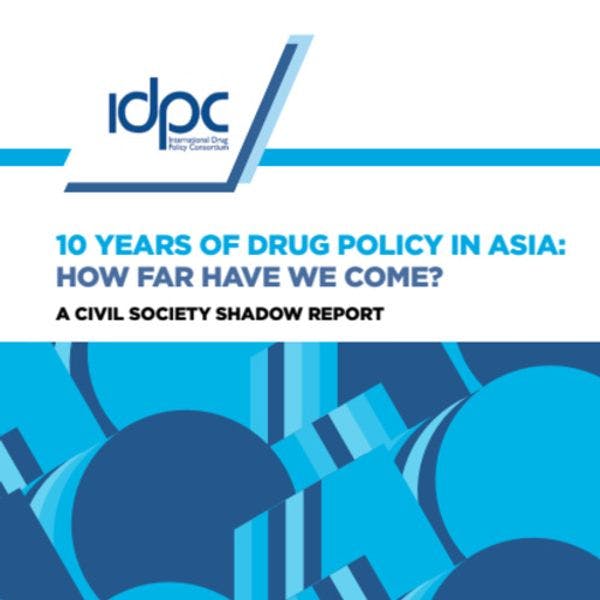10 años de política de drogas en Asia: ¿hasta dónde hemos llegado? Un informe sombra de la sociedad civil
El IDPC evalúa las consecuencias de las políticas de drogas adoptadas en Asia durante la última década, sopesando los avances logrados con respecto a los objetivos internacionales y regionales, y abogando por la necesidad de abandonar el nocivo enfoque de un mundo sin drogas. Más información, en inglés, está disponible abajo.
IDPC previously published a civil society shadow report with a global focus. Taking stock: A decade of drug policy is available here.
Objective of the Shadow Report on Asia
Countries in Asia implement some of the harshest drug policies in the world. As United Nations (UN) member states are set to meet in March 2019 to take stock of progress made since 2009 and delineate the next phase for global drug policy, ‘10 Years of Drug Policy in Asia: How Far Have We Come?’ evaluates the impacts of drug policies in Asia over the past decade from a civil society perspective. The critical role of civil society in the design, implementation, monitoring and evaluation of drug policies is acknowledged in the 2009 Political Declaration and Plan of Action, as well as in the Outcome Document of the 2016 United Nations General Assembly Special Session (UNGASS) on drugs. Using data from the UN, academic literature and contributions from civil society, this report aims to provide a critical assessment of drug policy failures and successes across the region, with the aim of informing high-level discussions on the next decade of drug policy.
Recommendations
Far from realising the goal of a ‘drug-free’ region, the data presented here indicate that commitments made by countries in Asia to ‘eliminate or reduce significantly’ the illicit cultivation, production, trafficking, sale and consumption of drugs have not been achieved and, in most cases, have caused added health, social, public security and economic harms. To support a critical review of existing regional strategies and shape a more humane and evidence-based way forward for drug strategy in Asia post-2019, the International Drug Policy Consortium (IDPC) recommends that governments:
- Move away from ‘drug-free’ targets towards adoption of more meaningful goals and targets in line with the 2030 Agenda for Sustainable Development, the UNGASS 2016 Outcome Document, and international human rights commitments.
- Meaningfully reflect upon the impacts of drug policies on the UN goals of promoting health, human rights, development, peace and security, especially for those most marginalised and vulnerable.
- Acknowledge and discuss the realities of drug policies in the region, including reforms that have been implemented and their impacts, whether positive or negative in their achievement of the UN goals.
- Put the well-being of people and communities at the centre of drug strategies in the region, by seeking to improve their living conditions, address their vulnerabilities and protect their human rights, in line with the 2030 Agenda for Sustainable Development.
Descargas
Temas
- Acceso a medicamentos fiscalizados
- Medios de vida alternativos
- Cannabis y sustancias relacionadas
- Centros de detención forzada
- Desarrollo (ODS +)
- Reformas de las leyes sobre drogas
- Reducción de daños
- Derechos humanos
- Acción policial
- Prisión y encarcelamiento
- 2016 UNGASS
- Segmento Ministerial de 2019
- Violencia, acción policial y castigo
- Desarrollo y medio ambiente
- Descriminalización, regulación y reforma
- Salud y reducción de daños
- Derechos humanos y justicia social
